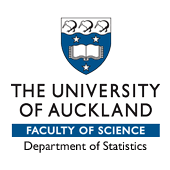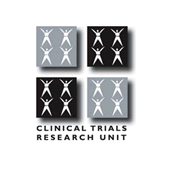Biostatistics Workshop 2009
~ Cluster Randomised Trials ~
25th -- 26th November
Keynote Speaker:

Department of Health Sciences
The University of York
United Kingdom
https://hsciweb.york.ac.uk/
Venue:
City Campus, University of Auckland
Cluster randomised trials are experiments where participants are allocated in groups rather than individually. Typical cluster randomised trials allocate to the same intervention all the patients in a general practice or in a hospital ward, or all children in a school or in a school class. This two-day course seeks to provide participants with knowledge of the special problems which arise in the design and analysis of cluster randomised trials. No previous knowledge of cluster randomised trials is required, but some knowledge of trial design and analysis in general would be necessary.
Day 1 will show why clustering is important and why it must be taken into account in the analysis of data from cluster randomised trials. We will look at some examples of trials and at the history of cluster randomised trials, how mistakes have been made in the past, and at improvements in understanding. We will then consider how clustering affects sample size, and the meaning and use of the intracluster correlation coefficient (ICC). We will then look at a simple and intuitive approach to an acceptable analysis using summary statistics and compare this with methods using robust standard errors and adjustment of standard errors using the ICC.
On Day 2 we will describe other approaches to the analysis: multilevel modelling, generalised estimating equations (GEE), and Bayesian hierarchical models. We shall compare the results of all these approaches in an adult education trial. We will then turn to practical problems of cluster randomised trials, including recruiting the cluster, matching, minimisation, etc. Three case studies will be briefly introduced and practical issues which have been encountered in designing and undertaking these trials will be presented. Finally, we will look at the extension of the principles of cluster randomised trials to the analysis of individually randomised trials where participants are then grouped in some way, such as by receiving treatment from the same clinician or being in therapy groups.
This two-day course will be delivered mainly by means of lectures. Interaction and discussion will be encouraged. There will also be practical exercises including some simple calculations and a critique of a published trial. The reporting of specific issues relating to cluster randomised trials will be discussed.
Download this page as a poster.



